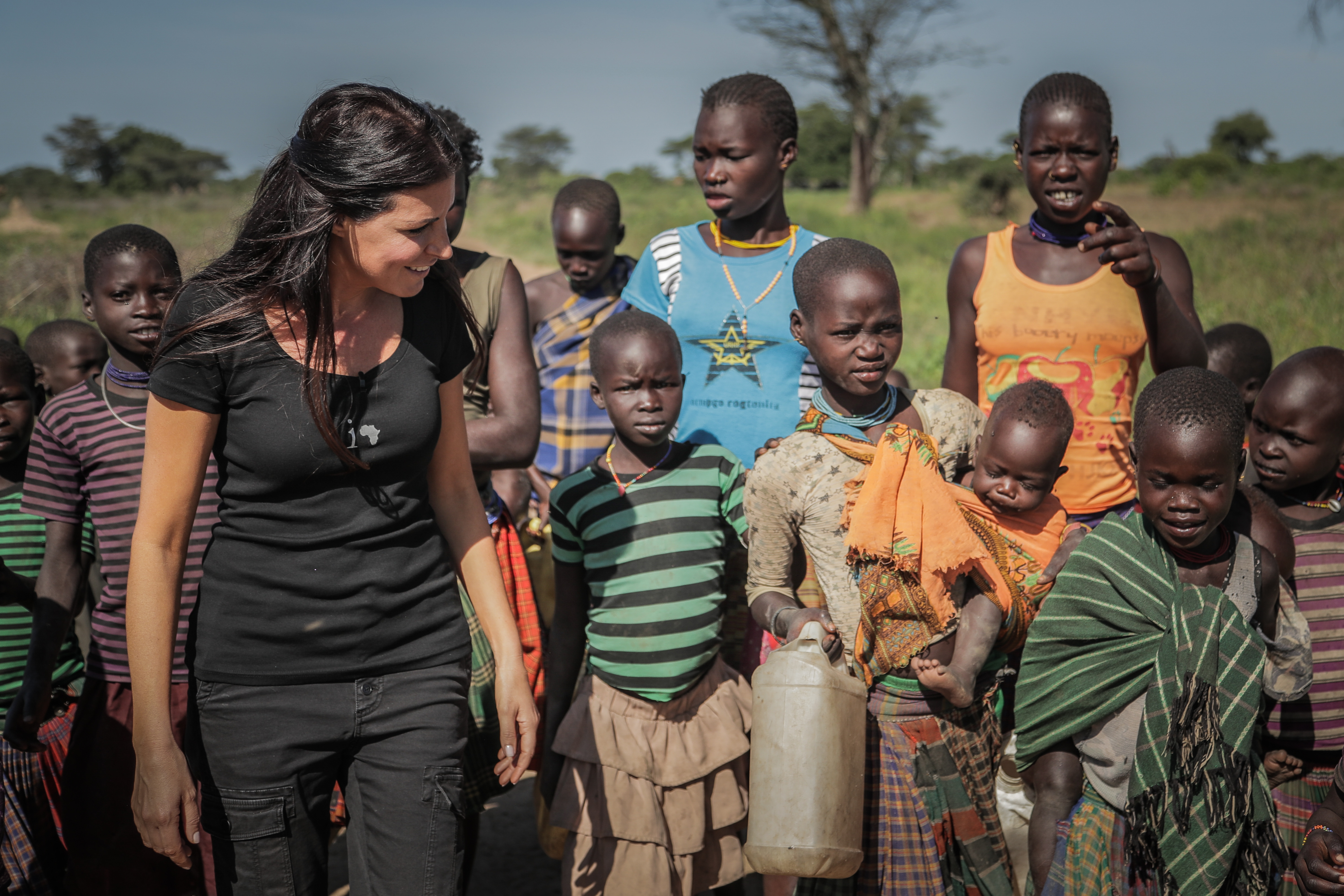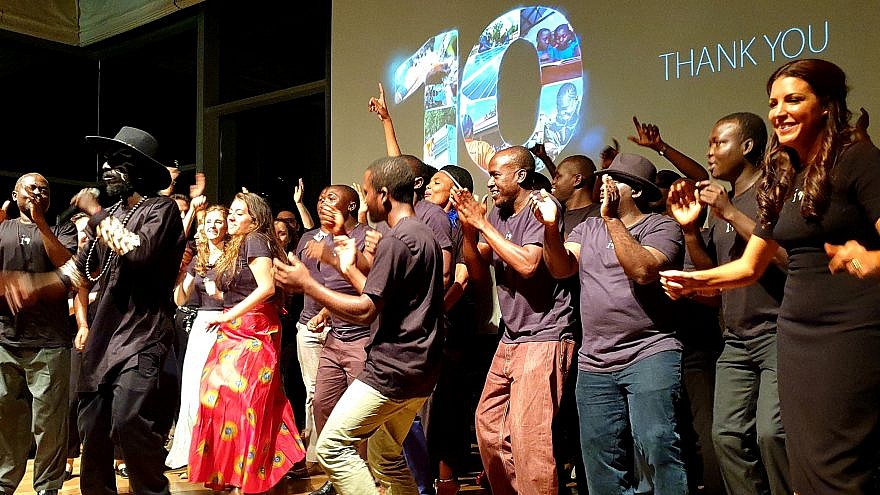Imagine giving birth in the dark. For those fortunate enough to have a charged smartphone, the husband will use the phone as a makeshift flashlight, enabling the doctor to see what his hands are doing.
Or imagine bathing, cooking and cleaning with contaminated water, and feeling sediments of dirt brush up against your skin as you attempt mundane everyday tasks like washing your face.
“We have women who go to the hospital at night to give birth and there’s no electricity, so they use kerosene. There are some cases where doctors and nurses ask patients to come with their own source of light,” Lerian Moshi from Tanzania told JNS.

Moshi was one of the 24 local Innovation: Africa (IA) employees who came to Israel earlier this month for a two-week training course in innovation and community development. Their trip, which was coordinated in partnership with Israel’s Agency for International Development Cooperation (MASHAV) and the Center for International Agriculture Development Cooperation, gave them an eye-opening look at the latest in Israeli technology that can help turn back the tide of poverty sweeping the continent.
For nearly 10 years, the New York-based Innovation: Africa has demonstrated that a little can go a long way. With simple Israeli technology, it is teaching developing nations in the continent how to create self-sufficient infrastructure and bring access to clean water, education, refrigeration for vaccines and medicines, and food security to the region.
To date, the organization installed Israeli solar, water and agricultural technologies in more than 200 villages in 10 African countries that has impacted the lives of some 1.3 million people. But most importantly, its program teaches local community leaders, project managers and engineers how to maintain the technologies given to them so they can be self-reliant.
“We are using Israeli innovations to empower and transform the lives of others,” said its founder and CEO, Sivan Ya’ari, at a Dec. 18 ceremony at the Peres Center for Peace & Innovation on honoring several milestones: a 10-year anniversary for IA, 60 for MASHAV and, of course, Israel’s 70th.
“President [Shimon] Peres understood that we cannot live on an island of prosperity, and that it is our duty to share,” she said. “He understood that poverty and ignorance enable terror, and that we can stop it if we chose to empower the other.”
It is a message that the African delegation has internalized during their time in Israel.
“Israel believes in not letting other people suffer,” Robert Khahosi, an IA project manager from Uganda, told JNS while touring the Old City of Jerusalem. “Like Moses, who lost one sheep and had to leave his other 99 sheep to look for the missing one, Israel is going back and making sure everyone is accounted for. We are that missing sheep.”
No more long walks for clean water
How then does IA enact such radical and practical change in these communities?
In Khahosi’s Uganda, for example, installing solar panels, solar pumps, water tanks and taps brought clean drinking water to villages where residents had to walk some three hours for access to non-contaminated water.
IA community developer Abraham Ngobeni saw similar transformations in his native Bushbuckridge, South Africa. “Women would collect water from open sources, where they would just gather water with their hands on the river banks,” he told JNS. “Sometimes, they’d travel long distances to do this. Innovation Africa changed that. In six months, we completed 11 projects. Now women don’t have to walk long distances to collect water. IA came as a saviour.”

While touring Israel’s leading agriculture and energy-research centers like the Volcani and Arava institutes, the delegation learned how the technology they are already using back home can be upgraded.
Mercy Tayim, for one, is particularly interested in seeing the implementation of hydroponics in her home country of Cameroon.
This relatively new Israeli technology takes urban gardening to the next level. With hydroponics, no soil is needed. Instead nutrients like fish excrement, duck manure or fertilizers are used in a water solvent. This is ideal for urban spaces that have little farmland or areas with limited fertile soil.
“In many places [in my country], there isn’t much free land, so this is a great option,” Tayim told JNS. “In other places, there is a surplus of land, but it’s not fertile. So lots of areas suffer from famine. If we can train people to use these technologies, we can help relieve our food-scarcity problem.”
Exporting this technology could be useful far beyond the massive continent’s borders. According to the Food and Agriculture Organization of the United Nations, 54 percent of the world’s population lives in urban areas, and that population is expected to increase to 66 percent by 2050.
But Ya’ari is most gratified when she sees how her organization affects people on an individual level.
“It is priceless to see the eyes of children looking at a bright light bulb for the first time, and to witness children and mothers tasting clean water,” said Ya’ari.
However, Ya’ari believes IA’s work has just begun.
“Although we’ve helped over 1 million people, it is only a drop in the ocean,” she said. “There are still over 600 million people in Africa without energy, and 350 million people searching for water every single day. Now that Israel is strong, by sharing its innovation we can bless other families in the world. We can fulfil our destiny, and by sharing our innovations we can take action and stand up to our responsibility to be a blessing and realize our purpose, which is to better this world.”

























